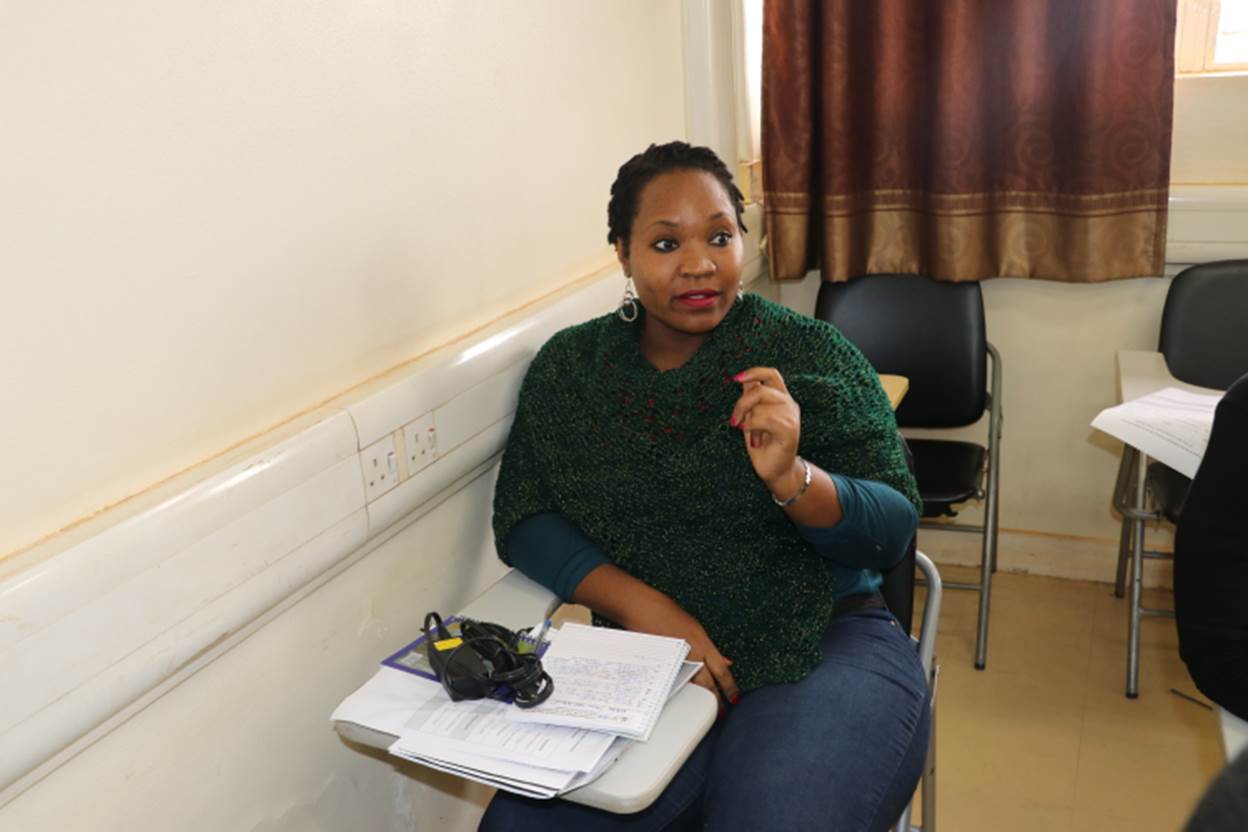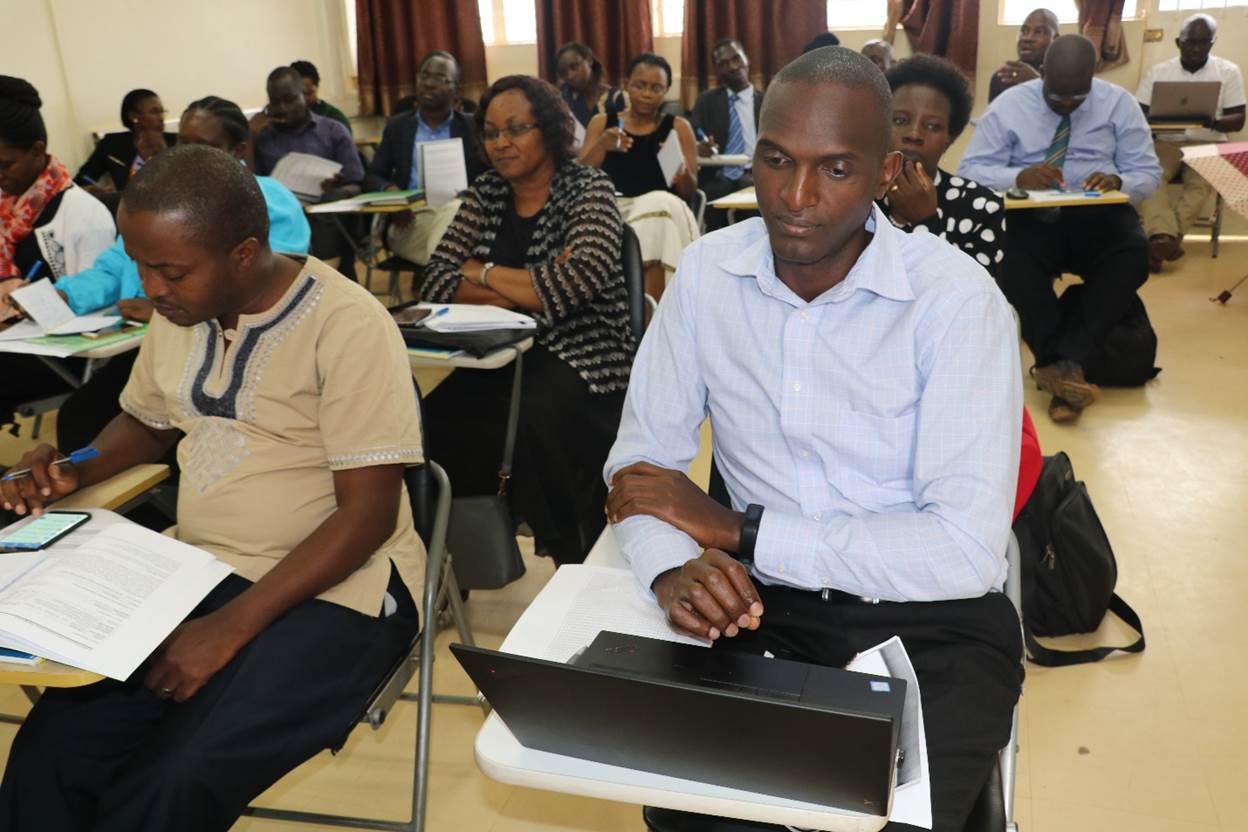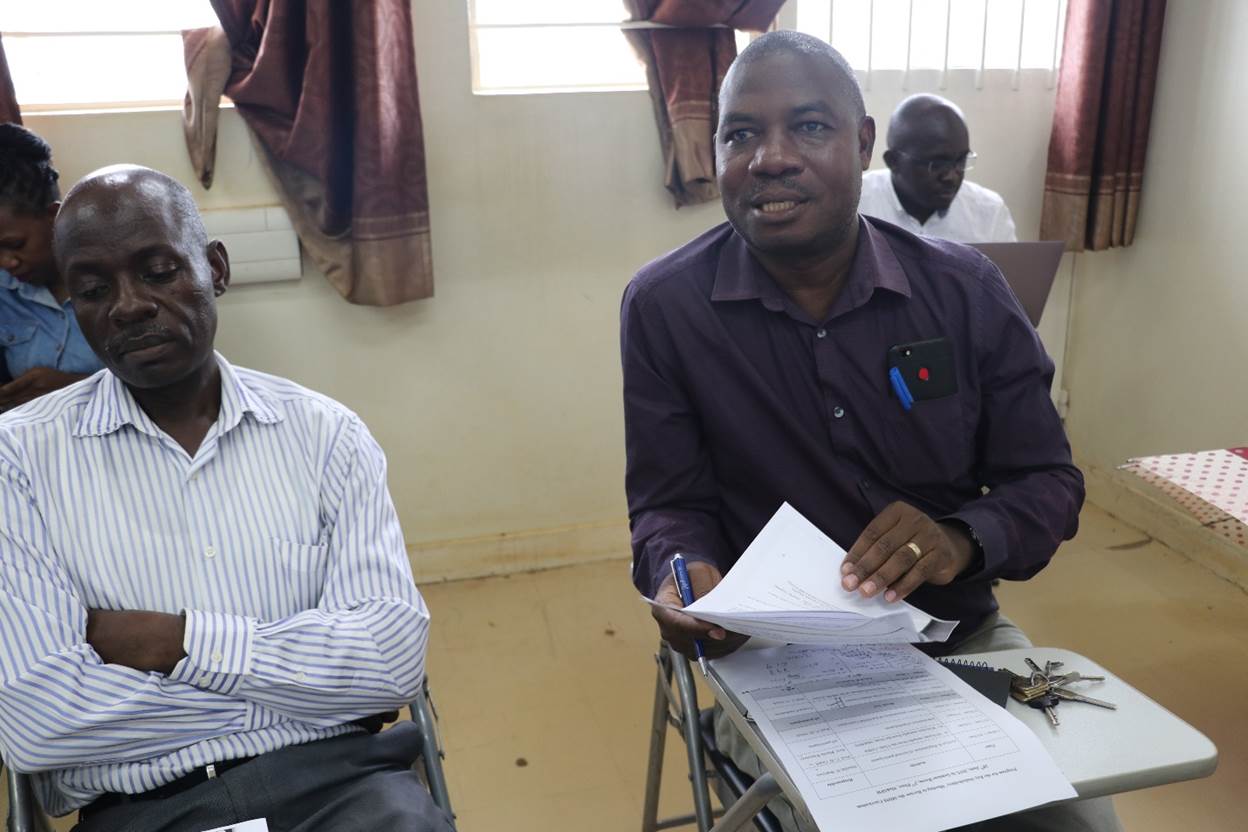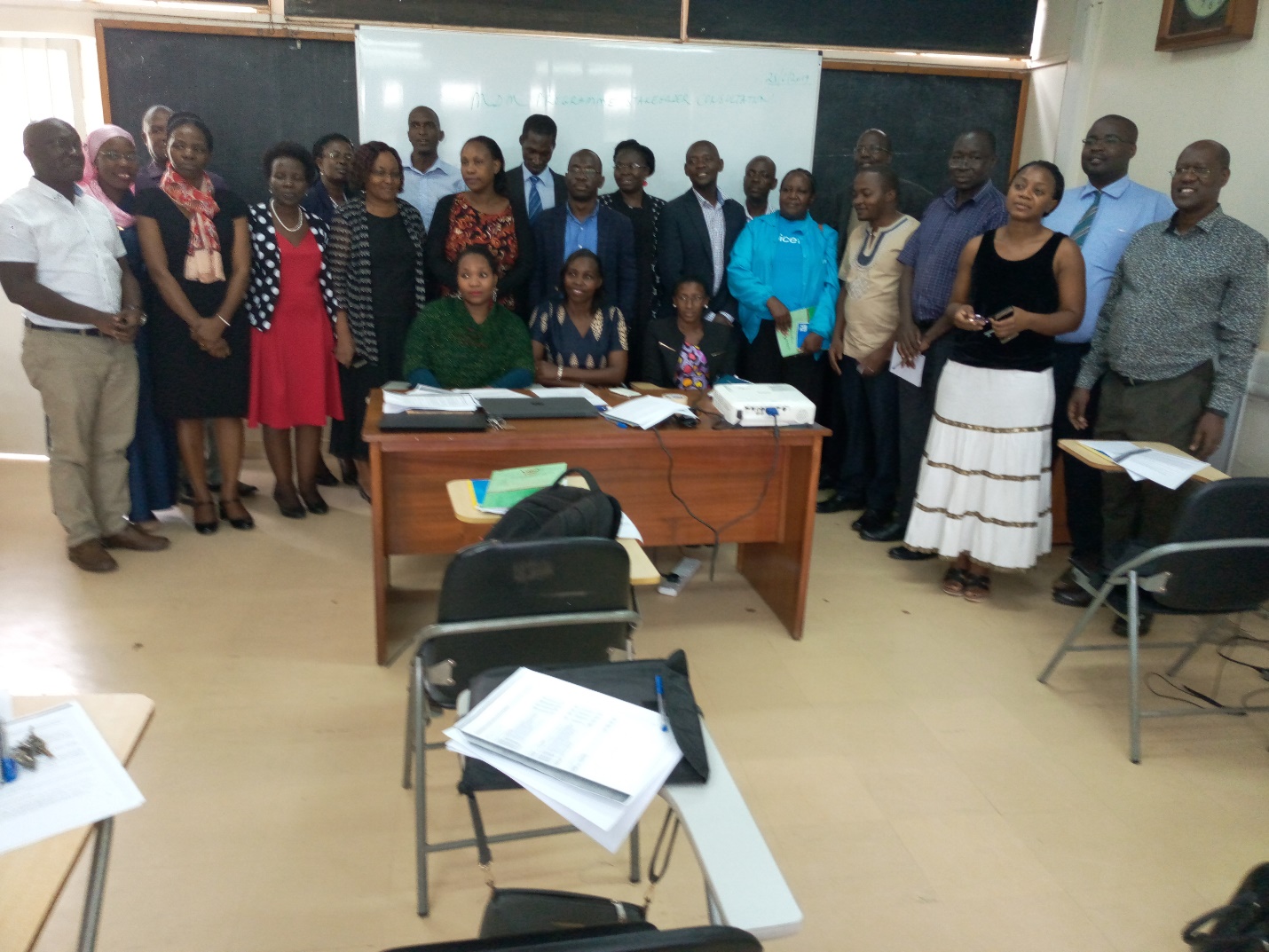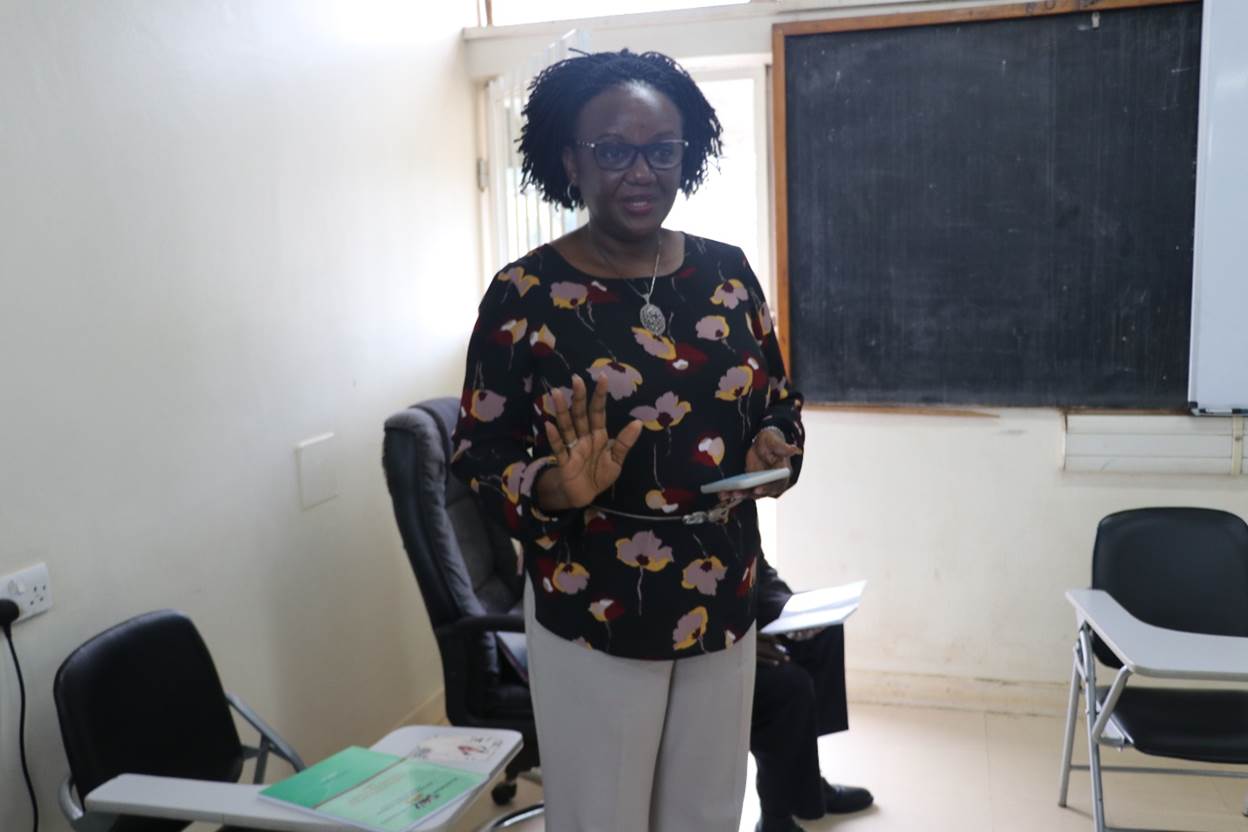
(The Dean of Makerere University School of Public Health (MakSPH) speaking at the workshop. She encouraged employers to give feedback on how MDM products are performing in their organizations so that the School can know what is being done right and where there is need for improvement.)
On 28th June 2019, staff at Makerere School of Public Health (MakSPH) gathered to review and exchange ideas on how to improve the Masters in Public Health- Disaster Management (MDM) curriculum. This development is in line with University guidelines that require every academic programme to be reviewed on an annual basis.
The MDM Course is a programme designed to develop risk reduction and public health disaster managers who have the knowledge and skills to enable effective public health intervention and implementation in Uganda and Africa.
Speaking at the workshop, Prof Rhoda Wanyenze, the Dean of MakSPH commended the stakeholders of this programme for their instrumental role towards the development of the MDM curriculum. Some of the different stakeholders present were, officials from the Ministry of Health, Uganda Red Cross Society (URCS), United Nations International Children’s Emergency Fund (UNICEF) and United Nations High Commission for Refugees (UNHCR). The faculty from the College of Health Sciences under which MakSPH is housed were also part of the workshop.
Prof. Wanyenze urged the stakeholders and other School partners to teach the students using experiences they have acquired as a result of their current work. She also called upon them to give feedback on whether what was being taught in the MDM Curriculum is filling the existing gaps out there depending on the graduates’ performance in these organizations.
Recommendation from Stakeholders
As part of the MDM review, Jennifer Akumu an alumni of MakSPH currently working with URCS said MakSPH students are equipped with too much knowledge however, most organizations are unaware that the MDM course exists thereby missing out on hands-on skills. She advised the School to take students to various organizations to showcase their potential as that would open up the job market for them.
According to Dr. Ekirapa Elizabeth, the Head of Department of Health Policy Planning and Management at MakSPH, there is need for regular field visits and employment of video recording in disaster sites as a way of improving quality of the MDM Curriculum. She explained; "Students who go to the field will also have a clear picture of what is on ground" said Dr Ekirapa. She also requested the course leaders to spread out the course to four years’ time and to offer it online so that it is able to attract the interest of international students who will be able to study at their convenience. Speaking about some course units, Dr. Ekirapa encouraged the merging of some course units to reduce on the completion time.
As a way of bettering the curriculum, Dr. Godfrey Bwire from the Department of Integrated Surveillance and Public Health Emergencies at the Ministry of Health called for a simulation exercise that students and staff can be a part of during major disasters around the country. He also stressed the need for MakSPH to set up an Information Centre on Disasters.
In her contribution, Dr Eva Kabwongera from UNICEF averred that two years of full time studying for the MDM course is quite long. She suggested that the course is made flexible with breaks whenever possible so that different partners can identify some students who can participate in their activities during disaster outbreaks. This will enable employers to tell the competencies of the students which will increase their prospects of getting employed. The experience that students gather during these activities can also be used when applying for jobs elsewhere.
Commenting about the way the course is delivered, Dr Esther Buregyeya, the Head of Department of Disease Control and Environmental Sciences emphasized the need for faculty to have a face to face interaction with the students as a way of promoting understanding and building a bond between students and their Lecturers. She also recommended that modules on community leadership, policy and governance, be embedded in the course. On logistics, management, Dr Buregyega suggested that students should be taught how to mobilize resources and how to bring stakeholders together.
In his remarks, Dr Julius Kasozi from UNHCR suggested that topics on program planning, design, project planning and management should be incorporated in Monitoring and Evaluation Course.
In her presentation of the MDM Curriculum, Dr Catherine Abbo, a Course Coordinator at College of Health Sciences stressed the importance of students understanding their own mental health since it enables them to have psychological first aid. "If a student is in position to understand psychological first aid, this will help them know what is required to go to the field and how to respond to various mental cases" noted Dr Abbo
Prof Christopher Garimoi Orach, the Department of Community Health and Behavioral Sciences where the MDM course is hosted suggested that programs be blended to include part-time programmes. "Many people are working so they are not willing to study fulltime. This is an area that should be looked at," said Prof. Orach while making closing remarks on the way forward. He also called for the retooling of teachers through short courses to make sure that they speak the language of students so as to help them understand MDM programmes. Prof Orach further suggested that marketing of MDM programmes through branding like putting on University shirts is very critical for student exposure and identity in the field and beyond. Some of the suggestions were adopted


